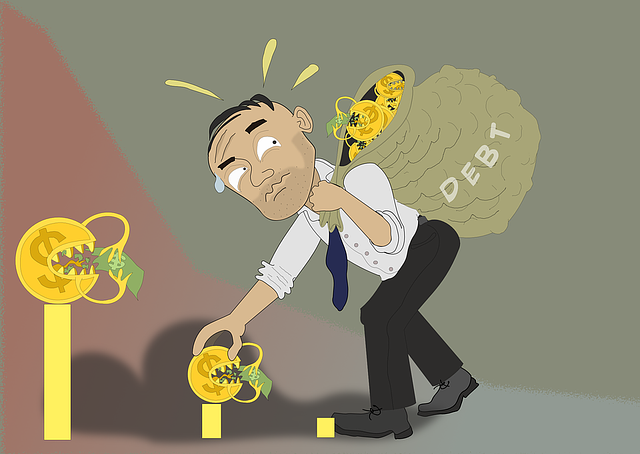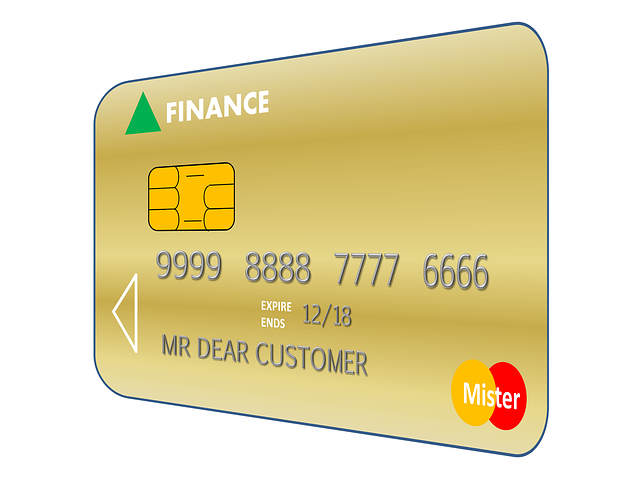Homeowner debt consolidation loans streamline high-interest mortgage debts, saving on interest and simplifying repayment. Compare rates, assess financial health, and understand loan terms for optimal savings. Create a strategic repayment plan, make extra payments, and maintain responsible financial behavior for long-term stability. Prevent future debt traps through budget tracking, goal setting, and exploring alternative borrowing options like fixed-rate homeowner consolidation loans.
Struggling with high-interest mortgage debts? Consider a homeowner debt consolidation loan—a strategic financial move to simplify your payments and save money. This article guides you through understanding this powerful tool, from the benefits of consolidating high-interest mortgages to the application process and repayment strategies. Learn how to qualify, navigate the loan market, and avoid future financial pitfalls. Take control of your finances with a well-informed decision on homeowner debt consolidation loans.
- Understanding Homeowner Debt Consolidation Loans
- Benefits of Consolidating High-Interest Mortgages
- Qualifying for a Debt Consolidation Loan
- The Loan Process: From Application to Approval
- Repaying Your Consolidated Mortgage Debt
- Strategies to Avoid Future High-Interest Debt
Understanding Homeowner Debt Consolidation Loans

Homeowner Debt Consolidation Loans offer a strategic way to manage and reduce high-interest mortgage debts. This type of loan allows homeowners to combine multiple existing mortgages or debt into a single, more manageable loan with potentially lower interest rates. By doing so, borrowers can simplify their financial obligations, save on interest payments, and free up cash flow for other expenses or savings goals.
When considering homeowner debt consolidation loans, it’s crucial to compare rates from various lenders. This ensures borrowers secure the best possible terms tailored to their financial situation. Additionally, evaluating one’s financial health and understanding when to consider debt consolidation for homes is essential. Homeowner financial assistance programs can also provide support, making it an opportune time to explore options that promote long-term financial stability and peace of mind.
Benefits of Consolidating High-Interest Mortgages

Consolidating high-interest mortgage debts with a homeowner debt consolidation loan offers several compelling benefits for borrowers looking to manage their finances effectively. One of the primary advantages is the significant reduction in interest expenses over time. By combining multiple high-interest loans into a single, lower-interest consolidation loan, homeowners can simplify their repayment process and save money on interest payments. This is particularly beneficial when interest rates are low, allowing borrowers to lock in a fixed-rate homeowner consolidation loan at an attractive rate, further enhancing savings.
Moreover, getting personalized debt advice from financial experts during the application process ensures that borrowers make informed decisions tailored to their unique circumstances. This guidance can help them choose the right consolidation loan type, such as finding low-interest rates on home debt consolidation options, which can save them additional funds in the long run. With a consolidated mortgage, homeowners gain clarity and control over their repayment schedule, making it easier to manage their finances and potentially improve their overall credit score.
Qualifying for a Debt Consolidation Loan

Many homeowners are burdened by high-interest mortgage debts, but qualifying for a debt consolidation loan can provide much-needed relief. These loans are designed to merge multiple debts into one, simplifying repayment and potentially lowering interest rates. Homeowners interested in this option should first assess their financial situation and ensure they meet the basic requirements set by lenders. One of the primary considerations is credit score; while not always a deal-breaker, a lower credit rating may result in higher-than-average interest rates or loan terms.
However, there are homeowner debt management solutions available for those with less-than-perfect credit, including debt consolidation loans for bad credit. Lenders offering these products aim to make financing accessible to more homeowners seeking relief from high-interest mortgage debts. The key is to shop around and compare the best rates for homeowner consolidation loans, keeping in mind that lower interest rates can significantly impact the long-term cost of repayment.
The Loan Process: From Application to Approval

When it comes to fixing high-interest mortgage debts with a consolidation loan, understanding the loan process is key. The journey begins with an application where potential borrowers detail their financial situation and goals. Lenders assess this information to determine eligibility, taking into account credit history, income, and existing debt obligations. This step is crucial for securing the best terms tailored to individual needs.
Once approved, the lender facilitates the consolidation, converting multiple high-interest debts into a single loan with a potentially lower interest rate. This not only simplifies repayment but also allows borrowers to consolidate debts and save on interest. The benefits of home equity consolidation include reduced monthly payments and the chance to build equity faster by paying down principal more efficiently. Borrowing against home equity can be a powerful tool for getting help managing homeowner debt, offering both financial relief and long-term savings.
Repaying Your Consolidated Mortgage Debt

After securing a homeowner debt consolidation loan, the next step is to focus on repaying the consolidated mortgage debt efficiently. This process involves creating a structured repayment plan tailored to your financial capabilities and timeline. Many lenders offer flexible repayment options, including fixed-rate or adjustable-rate loans, allowing you to choose a term that aligns with your goals.
An effective strategy is to make extra payments whenever possible to reduce the overall interest paid and shorten the loan term. This not only helps you save money but also improves your credit score over time. By consistently meeting your repayment obligations, you demonstrate responsible financial management, which can open doors to better refinance options for debt reduction in the future.
Strategies to Avoid Future High-Interest Debt

To avoid falling into high-interest debt traps again in the future, homeowners can implement several effective strategies. Firstly, understanding and adhering to a strict budget is paramount. This involves tracking expenses, setting realistic financial goals, and allocating funds accordingly. By doing so, you gain control over your finances and reduce the likelihood of accumulating excessive debt.
Additionally, exploring alternative borrowing options like fixed-rate homeowner consolidation loans in the UK can be a wise decision. These loans offer lower interest rates compared to traditional high-interest mortgages, providing long-term savings. When is debt consolidation the right move? It’s when you have multiple high-interest debts and a consolidation loan allows you to combine them into one manageable payment with a potentially lower overall interest rate, thereby saving money and simplifying your financial obligations.
Homeowner debt consolidation loans offer a strategic path to financial freedom by simplifying and reducing the interest burden of high-interest mortgage debts. By consolidating, homeowners can streamline repayment, save on interest, and gain control over their finances. This article has guided you through understanding these loans, their advantages, qualification criteria, and the loan process, empowering you to make an informed decision. With proper planning and strategies to avoid future high-interest debt, you can achieve long-term financial stability and peace of mind.
